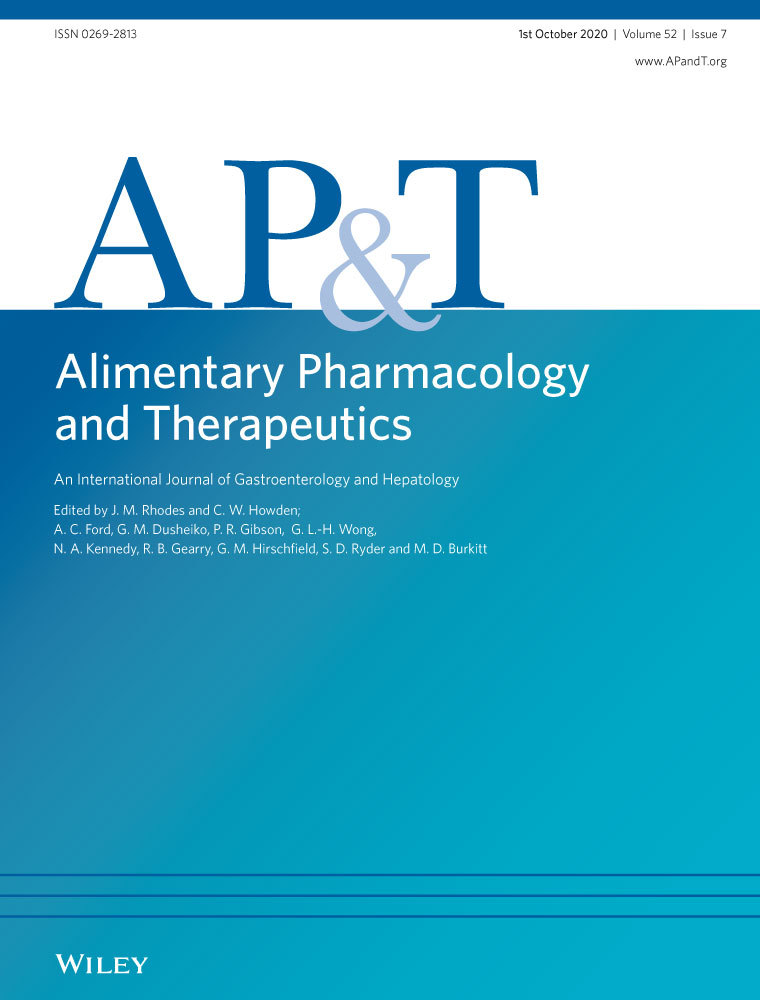Editorial: biologics in the therapy of Crohn’s disease—the fog clears
Abstract
LINKED CONTENT
This article is linked to Bohm et al paper. To view this article, visit https://doi.org/10.1111/apt.15921
The medical armamentarium for treating patients with Crohn's disease (CD) increased in recent years1 with two newly available agents having another mode of action than blocking the TNF pathway: an anti-adhesion antibody (vedolizumab) and an anti-IL12/23 antibody (ustekinumab). Physicians now face multiple therapeutic options and multiple possible sequences for treating patients with refractory CD. However, by contrast with other immune-mediated inflammatory diseases such as rheumatoid arthritis, psoriasis or ulcerative colitis, no head-to-head trial comparing these molecules is available so far in CD.
To overcome this knowledge gap, several indirect comparisons between these molecules have been made. In a network meta-analysis based on findings from 18 placebo-controlled phase 3 trials, Singh et al compared results of infliximab, adalimumab, certolizumab pegol, vedolizumab and ustekinumab for induction and maintenance in active luminal CD.2 In biologic-naïve patients, the highest efficacy was observed with infliximab and adalimumab to induce clinical remission and response. Infliximab at standard doses was superior to certolizumab pegol, ustekinumab and vedolizumab as maintenance therapy. In patients with prior anti-TNF exposure, infliximab, adalimumab and ustekinumab were ranked highest for induction of clinical remission. More recently, two multicentre experiences comparing ustekinumab to vedolizumab in CD patients who failed at least one anti-TNF agent have been published. Both used propensity score models to reduce the effect of treatment-selection bias. In the first, analysing retrospectively data from 239 patients (132 vedolizumab and 107 ustekinumab) treated in five tertiary French centres, the authors observed a higher clinical remission rate and drug persistence of ustekinumab over vedolizumab.3 In the other, a nationwide Dutch prospective cohort from 15 hospitals, 128 patients treated with vedolizumab and 85 with ustekinumab who failed one or two anti-TNF agents have been followed for at least 1 year.4 Again, the authors found better efficacy for ustekinumab than vedolizumab.
The recent study by Bohm et al compared efficacy and safety of anti-TNF to vedolizumab in a large North-American cohort of 1266 CD patients.5 In biologic-naïve patients, vedolizumab provided significantly higher clinical remission than subcutaneous anti-TNF. When compared to infliximab, vedolizumab efficacy was similar as first-line medical therapy and lower as second-line. Moreover, vedolizumab persistence was lower at 6 and 12 months compared to anti-TNF agents. Regarding safety, patients treated with vedolizumab experienced fewer non-infectious serious adverse events than those receiving anti-TNF agents. Conversely, rates of serious infections were comparable.
The CD therapeutic landscape will dramatically expand in the next years with new monoclonal antibodies and small molecules targeting new molecular pathways. However, pragmatic head-to-head trials will not be available for comparing all these molecules and all therapeutic sequences in CD. To optimally define each drug's positioning, comparative cohort studies adjusted on patients’ characteristics at baseline, such as the study from Bohm et al, will be required. Importantly, and beyond the efficacy and safety profiles of all these CD agents, frequency and route of administration 6, policies and costs will help to determine clinical guidance.
ACKNOWLEDGEMENTS
Declaration of personal interests: DL declares counselling, boards, transports or fees from Abbvie, Biogaran, Biogen, Ferring, Gilead, HAC-pharma, Janssen, MSD, Novartis, Pfizer, Prometheus, Roche, Takeda, Theradiag, Tillots. PR declares fees from Amgen.




